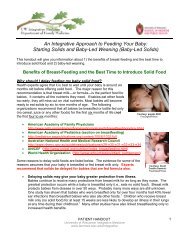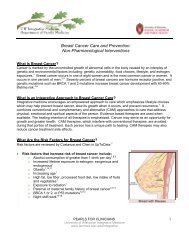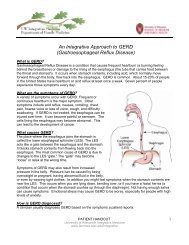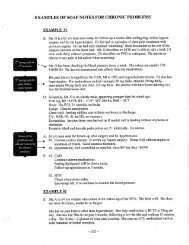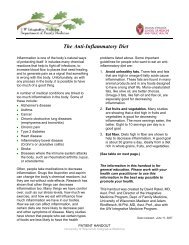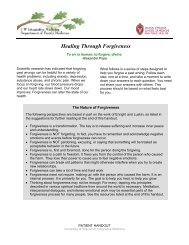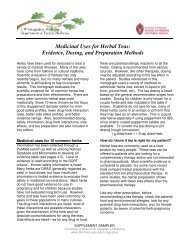Mental Notes Magazine - UW Family Medicine - University of ...
Mental Notes Magazine - UW Family Medicine - University of ...
Mental Notes Magazine - UW Family Medicine - University of ...
You also want an ePaper? Increase the reach of your titles
YUMPU automatically turns print PDFs into web optimized ePapers that Google loves.
Depression, anxiety, and irritability are necessary for the maintenance <strong>of</strong> the<br />
dominance hierarchy in social groups<br />
Difference Amplification<br />
The adaptive cycle is associated with frequent success<br />
and the maladaptive cycle with persistent failure. If<br />
two individuals are engaged in agonistic competition,<br />
the winner experiences the adaptive cycle and, if the<br />
adversary continues to lose, he will experience the<br />
maladaptive cycle. Difference amplification refers to<br />
how adaptive and maladaptive cycles magnify the initial<br />
advantage that the winner enjoys and this sometimes<br />
manifests as diverging social status. Most <strong>of</strong> human<br />
evolution occurred in small hunter-gatherer groups,<br />
when the same two individuals were likely to compete<br />
over a considerable time. In early man, those who rose<br />
in the hierarchy by virtue <strong>of</strong> agonistic success had better<br />
access to desirable mates, food and territory.<br />
Because <strong>of</strong> positive assortative mating, the winner<br />
chose mates that were better endowed which resulted<br />
in the winner’s progeny having a better endowment<br />
than the progeny <strong>of</strong> the loser. Agonistic success would<br />
therefore have given the individual an immediate<br />
advantage in the struggle for survival and also given his<br />
genes a further advantage through his progeny (Sloman<br />
and Dunham, 2004).<br />
Phylogenetic Adaptation<br />
Charles Darwin’s monumental contribution was<br />
to demonstrate how natural selection led to the<br />
evolution <strong>of</strong> all species including humans by promoting<br />
the survival <strong>of</strong> the fittest. Greater fitness implied<br />
better adaptation to the particular environment and<br />
the increase in fitness over successive generations<br />
represented phylogenetic adaptation. By magnifying the<br />
advantage <strong>of</strong> those who were successful in agonistic<br />
competition, difference amplification gave those who<br />
were more successful an added advantage, which would<br />
have increased the rate <strong>of</strong> phylogenetic adaptation.<br />
Many scientists have wondered how humans could have<br />
evolved from Homo erectus to Homo sapiens in such<br />
a short time on the evolutionary scale - about 600,000<br />
years. Difference amplification could provide at least a<br />
partial answer.<br />
References<br />
Goodall, J., In the Shadow <strong>of</strong> Man: revised edition. Boston<br />
(MA): Houghton Mifflin Company; 1988.<br />
Price, J.S. Hypothesis: The dominance hierarchy and the<br />
evolution <strong>of</strong> mental illness. Lancet, 1967: 243-246.<br />
Schjelderup-Ebbe T. Social behavior in birds. In:<br />
Murchison C. Editor. Handbook <strong>of</strong> Social Psychology.<br />
Worcester (MA) : Clarke <strong>University</strong> Press: 1935. P 947-<br />
972.<br />
Sloman, L., Sturman, E. Winning and losing; an<br />
evolutionary approach to mood disorders and their<br />
therapy. Can J Psychiatry 2011; 56: 324-332.<br />
Sloman, L., Dunham, DW, The Matthew effect:<br />
Summer 2012 / <strong>Mental</strong> <strong>Notes</strong> / 25



